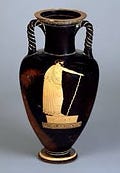Oral lock

Some of the best books should have never been written. Some of the world’s best stories should have never been put in writing.
When I was a child, my parents read a poem to me so many times I became, for a v…
Keep reading with a 7-day free trial
Subscribe to Biblonia to keep reading this post and get 7 days of free access to the full post archives.

